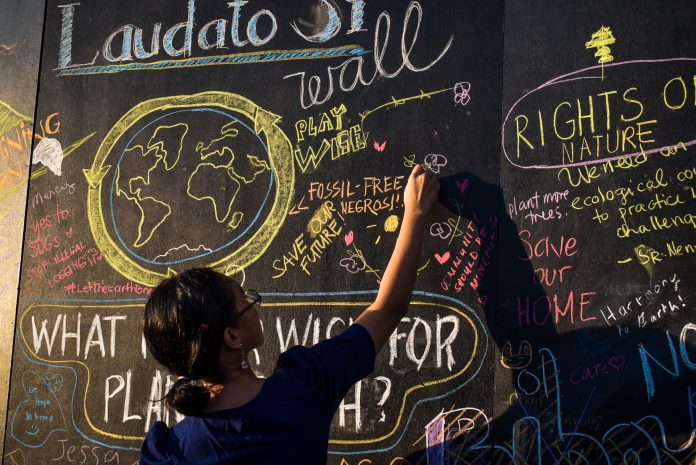Pro-environment activists and faith-based groups called for “pro-environment” and “pro-poor” actions as the Catholic Church this week marks the seventh anniversary of the release of Pope Francis encyclical Laudato si’ on the care of the environment.
“There is a greater need to understand what our responsibility is to Mother Nature,” said Bishop Jose Colin Bagaforo of Kidapawan, national director of Caritas Philippines.
The urgency to address the harmful effects of human activities on the environment emerged during an interfaith dialogue in Manila on Wednesday, May 25.
Among the issues discussed were the impacts and threats of climate change, plastic pollution, and destructive mining that repeatedly harm the most vulnerable communities.
Bishop Bagaforo stressed the importance of “listening and journeying together” of all sectors to resolve the problems, saying, it is also “a continuing challenge to the Church, our communities, and families.”
Yeb Saño, vice chairperson of Laudato si’ Movement and former Philippine climate negotiator, said the spiritual aspect of the ecological crisis should not be overlooked.
He said there is “so much strength and wisdom we can derive” from strong traditions of social justice teachings, regardless of one’s spiritual tradition.
“Until we find the courage to stand up to arrogance and greed then we will not be any nearer to solving and averting this crisis,” said Saño.
Another important topic that came out during the dialogue is the need for an “integrated approach to solutions combating poverty, restoring dignity to the excluded, and protecting nature.”
“We have to convince ourselves that injustice is not invincible,” said Saño.
Representatives from vulnerable communities and those affected by the impact of climate change shared testimonies during the dialogue.
Krishna Ariola, a youth advocate from Negros Occidental province, shared her community’s struggles against fossil fuels.
She said renewable energy advocates, aided by the Catholic Church’s social action centers, succeeded in stopping a 300-MW coal plant from being built in her province. A new power plant fueled by liquefied natural gas was, however, proposed, prompting criticism by activists.
While recognizing that they are facing “battles against big forces of power,” Ariola said the youth of Negros Occidental and their allies remain steadfast in their stand against perceived injustices.
“If we unite not out of fear but out of hope and the motivation to protect our community, there is so much power that we can pull together,” she said.
Other faith leaders — Buddhists, Hindus, and members of the Iglesia Filipina Independiente and the Philippine Council of Evangelical Churches — also delivered messages during the gathering that was held at the Manila Cathedral.









